ISLAMABAD, March 11: The Supreme Court observed on Monday that what lay behind the Saturday’s Badami Bagh arson attack in which over 178 houses belonging to the Christian community were burnt appeared to be more than what met the eye.
A three-judge bench comprising Chief Justice Iftikhar Mohammad Chaudhry, Justice Gulzar Ahmed and Justice Sheikh Azmat Saeed which had taken notice of the attack in Lahore’s Josheph Colony rejected as incomplete a report on the incident submitted by the Punjab administration and ordered it to submit by Wednesday a 258-page report on the 2009 Gojra riots in Faisalabad prepared by a tribunal headed by Justice Iqbal Hameedur Rehman.
The court said it wondered whether the tribunal’s report had ever been made public and its recommendations implemented.
It also asked about the fate of Ahmed Raza Tahir, a police officer who was severely criticised for his role in handling the Gojra incident and the tribunal had suggested that he should never be placed on field duty.
The court said it intended to pass an appropriate stricture against senior police officers, including Acting Inspector General Khan Beg and the Lahore police chief, but after the filing of comprehensive reports by the Punjab government.
The court said it wondered if there was a possibility of a land dispute or an alleged attempt to acquire lucrative property of Joseph Colony on Noor Road by certain interested quarters being instrumental behind the incident.
The area is spread over 20 kanals in the heart of Lahore. The angry mob forced some 170 Christian families to flee the area and burnt their houses over allegations that one Sawan Masih had committed blasphemy by making offensive comments about the Holy Prophet (Peace Be Upon Him) and by defiling pages of Holy Quran.
Justice Azmat expressed apprehensions over a growing pattern in the Punjab police that whenever minorities came under attack it avoided taking any action. Visibly irked by the response of Advocate General of Punjab Ashtar Ausaf and the acting inspector general, the court observed that prime facie it appeared that the acting IG, city police chief and the superintendent of police had failed to protect the life and property of the people of Joseph Colony.
Ashtar Ausaf regretted that the federal government was sitting on a request by the Punjab government to appoint a senior officer to fill the vacant post of the IG.
The court was disturbed by the absence of a satisfactory reply by the Punjab police to why the occupants of the area were forced to vacate their houses a day before the incident and why police did not put up any resistance to the mob?
Had the police taken adequate measures the incident could have been averted, it said, adding: “When the police force itself persuaded the inhabitants to leave, too many inferences could be drawn from the fact.”
The bench said different versions of the fact were brought to the court, including the ensuing polling in the area to elect representatives for the local market. “What we have failed to understand is the link between the elections and the Christian community living in the area,” it said.
The court noted that Imran, a barber, had complained against Sawan Masih about having made the derogatory remarks while sitting on a rickshaw when the complainant was going to godowns in the area after dawn on March 7, but moved an application about the incident to the local police on March 8 at about 3.05pm.
The court expressed dismay over the absence of supplementary recording of evidence of the complainant and witnesses. No intention was shown by the police to conduct a thorough investigation and make attempts to protect the property of people in the area.
The court observed that the incident was a serious threat to the life and property of the people belonging to the minority community, which was a serious violation of fundamental rights guaranteed under Articles 9, 14, 23 and 24 of the Constitution.


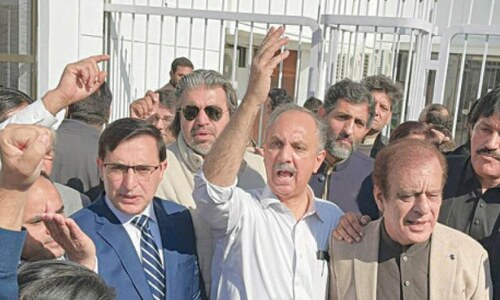
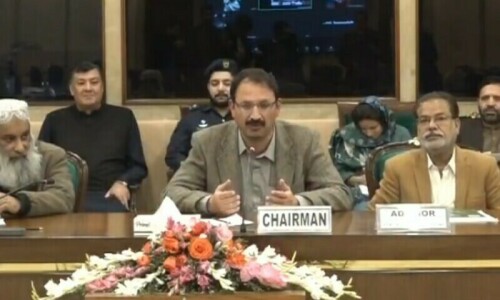














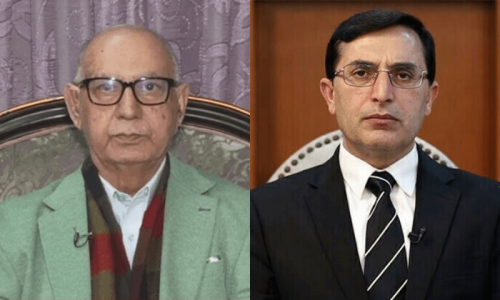















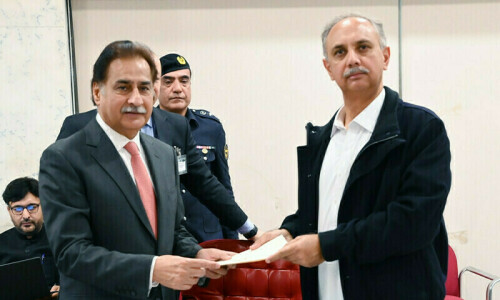





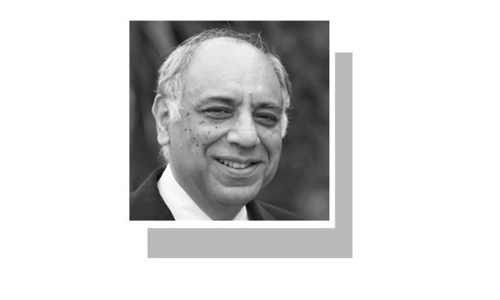








Dear visitor, the comments section is undergoing an overhaul and will return soon.